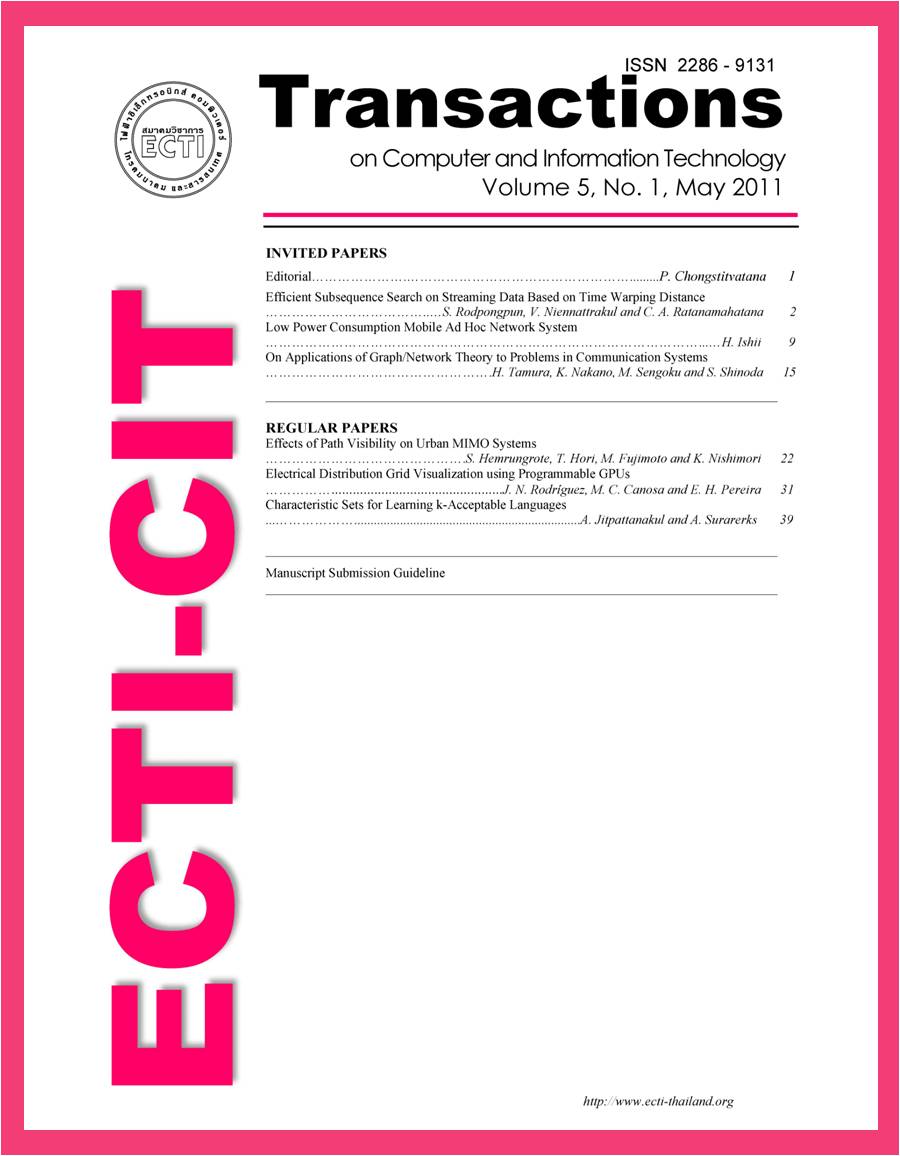On Applications of Graph/Network Theory to Problems in Communication Systems
Main Article Content
Abstract
Graph/network theory results are applicable to problems in communications. As a representative example, the node coloring problem in graph theory is applicable to the channel assignment problem in cellular mobile communication systems. The node coloring problem is NP-complete, meaning that optimally solving it is very difficult. Therefore, we use heuristic algorithms for the channel assignment problem. In this case, the graph theory results show the legitimacy of using heuristic techniques. On the other hand, we can directly apply graph theory to communication problems. For example, on contents delivery services in the Internet, we place mirror servers that provide the same contents on the network. Location problems on flow networks are applicable to mirror server allocation problems. In a simple case, we can efficiently solve the problem. In this paper, we concentrate on multi-hop wireless networks and consider the relationship between their problems and the results of graph/network theory.


